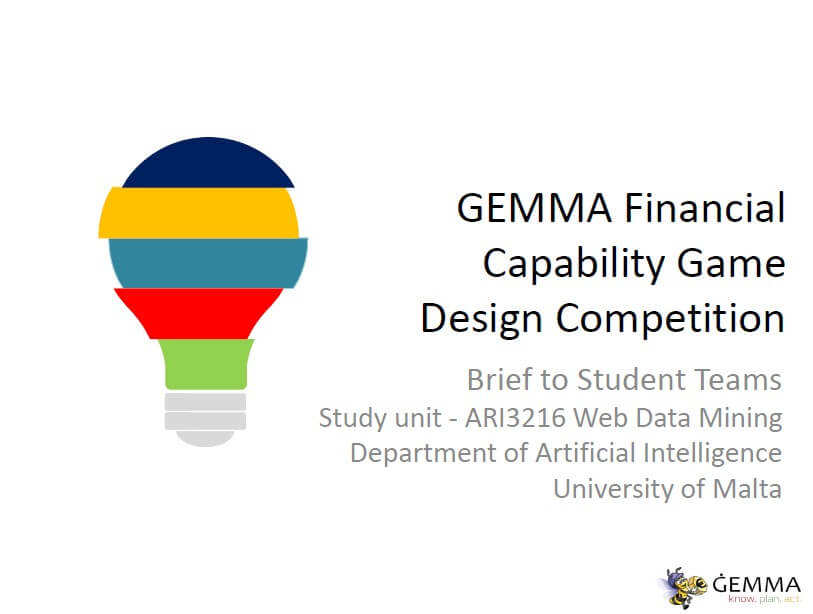Gamification – Do games really help you learn?
In May 2020, the Ministry for the Family, Children’s Rights and Social Solidarity (MFCS) and the University of Malta signed a Memorandum of Understanding for financial capability gamification concept and prototype design. The agreement was entered between the department of Artificial Intelligence at the University of Malta and ĠEMMA, which is the unit within the Ministry.
The students participating in the ‘Web Data Mining’ module worked on the design and implementation of the ĠEMMA financial capability prototype.
What is Gamification?
Gamification is the process of taking game-based elements and putting them into a non-gaming context. In other words, it is the application of game-like mechanics to non-game entities to encourage a specific behaviour creating a more effective and engaging learning experience.
Effective use of gamification helps learners apply their learning to the job through real-life situations in a controlled environment. Gamification-based learning courses will typically have the components like a storyline, challenges, and rewards.
What are the benefits of gamification?
- Better Learning Experience.
When learner engagement is high, there is more recall and retention. With gamification, learners show high levels of attention as they learn and have fun at the same time. - Better Learning Environment.
The learning environment that gamification in eLearning provides is informal and effective, safe and apt to reinforce learning. Learners get to place themselves in the circumstances similar to real-life situations. The decisions they make here go a long way in helping them retain knowledge. - Instant Feedback.
The learning reinforcement is immediate as learners get instant feedback telling them whether the decisions they make are correct or not. Instant feedback is also a great way to encourage learner engagement and retention quotient. - Prompting Behavioural Change.
Gamification is not just about points, badges, and leader boards. When designed wisely in tandem with scientific principles of repeated retrieval and spaced repetition, gamification can bring about the desired behavioural change effectively. With an increase in the millennial workforce a different approach is required in contrast to traditional eLearning approaches and gamification fits in well.
Therefore, depending on how well a game is designed; if specific concepts are explained, then you are disseminating learning. The best learning games teach in the same way good teachers teach. They help learners find genuine excitement in learning and help in learning a topic.
Through the MOU, the Ministry sponsored the students for the completion of two phases. The presentation below shows the requirements for the gamification competition for both phases:




